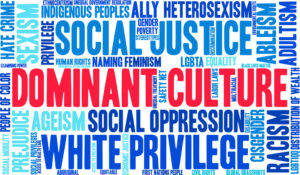
We are really quick to assume some people are mostly just like us. These people may live in our neighborhood or neighborhoods like ours. They may work in our companies or companies like ours. They may have attended the same schools or schools like ours. They may share our passions or passions similar to ours. Once we decide these people are mostly just like us, we look past their color, religion, accent, gender, and sexual orientation. We treat them the way we would want to be treated. With courtesy and respect.
And then there are the people who “obviously aren’t” mostly like us. We usually make this assumption just as quickly, or even more quickly. We may not know what we saw or heard that triggered the decision. It could have been behavior, dress, body type, race, something else, or a combination. We may not even realize we’ve made the decision. But we treat these people differently than the ones mostly like us. We treat them with less respect. Maybe less courtesy. Maybe worse, if we feel fear, disgust, or resentment.
In both cases, our assumptions are equally likely to be wrong because we are operating on so little information. Your fellow engineer three cubicles down may share none of your values. But the guy at the train station asking for money might have become a soulmate except for an act of fate that stripped him of his livelihood. And yet, we pigeon hole both almost instantly and treat them accordingly.
I believe these comments apply to everyone, even the kindest, most open minded, and least prejudiced people I know. Despite their best intentions. I also believe those predisposed to single out particular characteristics are no different, just worse. Their behavior is probably more extreme and more frequently governed by fear, disgust, or resentment. And when someone gives them permission to be disrespectful, hateful, even violent, they are a lot worse. But no one seems immune to the fundamental problem of categorizing people instantly based on nothing of substance. We all have our triggers.
And everybody loses.
We lose opportunities to learn, to see the world through the eyes of others, to make a positive difference, and to live with a ready smile in place of destructive emotions like fear, resentment, and disgust.
We must all work to see people for the individuals they are. We must strive to recognize our own triggers that drive us toward disrespect, fear, resentment, and disgust. We must learn to deal with those reactions in constructive, respectful ways. And we must help others do the same. Open your eyes and your heart will follow.
If we could open enough eyes and hearts, maybe we could also arrive at that day when the idea of using a gun to solve a problem is as quaint and unimaginable as a scene from Bonnie and Clyde.
OK, so maybe that is a little farfetched. What can I say. I’m an incurable optimist.


Comments are closed.